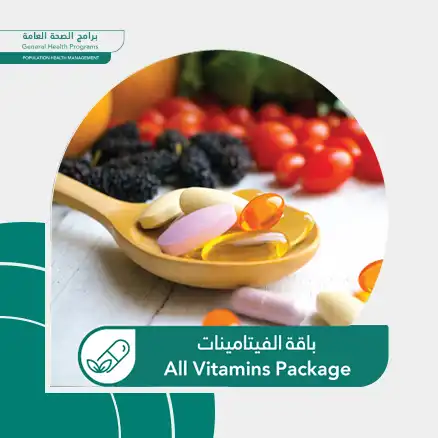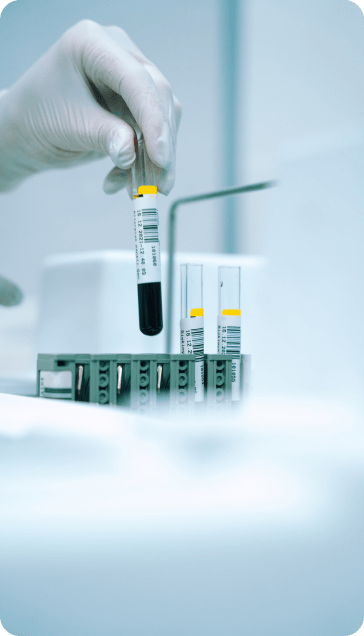
Al Borg Diagnostics
Tips for maintaining student health after Eid
Lifestyle changes occur during the holy month of Ramadan and Eid al-Fitr, with increased family gatherings and visits and individuals engaging in religious rituals and prayers. These changes can significantly impact people’s lives and may negatively affect students’ health after EID. Therefore, we will provide you with tips on this matter:
Tips to maintain student health after Eid
Here are a few tips to help prepare your child for a healthy and active return to school after the holy month of Ramadan and EID:
1. Regulate Sleep Patterns
Ramadan and Eid al-Fitr affect sleep schedules, as most people wake up in the middle of the night during Ramadan for suhoor, which affects the quality and quantity of sleep hours. Additionally, there are often late-night feasts and gatherings during EID, requiring children to stay awake for extended periods.
Since lack of sleep significantly and negatively affects a child’s health, organizing your child’s sleep schedule and ensuring they get enough hours of sleep is one of the essential tips for a healthy return after EID. (1)
Try to establish a daily routine of going to bed early to wake up early with energy and vitality.
2. Modify Eating Habits
To avoid putting stress on the digestive system and ensure students remain active throughout the day, follow these eating habits after fasting and EID:(2)(3)(4)
- Gradually increase food intake to allow the body to adapt to the new digestion pattern, by consuming five small-sized meals.
- Ensure that meals contain proteins, leafy greens, fresh vegetables, and good carbohydrates to compensate for the vitamins and minerals lost during the holy month of Ramadan.
- Avoid excessive consumption of foods high in sugar or fats, as they slow metabolism.
- Ensure that your child has breakfast in the morning.
- Make sure your child gets an adequate amount of fluids to keep the body hydrated and prevent dehydration.
- Encourage your child to continue consuming dried fruits such as dates and figs as they are excellent sources of iron, fiber, and antioxidants that protect against free radicals.
3. Nurture Your child Emotional Health
It is essential not to neglect your child’s emotional health after Ramadan and EID. When Ramadan and Eid al-Fitr end, individuals miss the beautiful nights filled with gatherings and religious rituals, which may lead to feelings of depression.
Therefore, paying attention to your child’s emotional health and providing ongoing support by talking to them and organizing both indoor and outdoor activities is crucial. (2)
4. Engaging in Physical Exercise
It is essential to involve your child in a routine of physical exercise. Try to incorporate your child at least 30 minutes of physical activity a few times per week, This helps maintain their health and well-being.(3)
Following these tips ensures your child has a healthy and smooth transition back to school after EID.
Tips for Maintaining Health during EID
To maintain students’ health after EID, it is important to follow some tips during the festive days, which are filled with family gatherings and visits with delicious dishes and sweets that can cause individuals to overlook their health: (5)
- Consume Small Portions: Eat small quantities of food and avoid large meals to facilitate digestion and increase metabolism.
- Limit Sweets Intake: Avoid excessive consumption of sweets as it can lead to a spike in blood sugar levels and stomach upset.
- Consume a Variety of Fruits and Vegetables: Ensure a diverse selection of fruits and vegetables to replenish the vitamins and minerals depleted during fasting.
- Limit your Meat Consumption: Avoid eating meat, as it can be difficult to digest.
- Avoid Carbonated Beverages: Avoid carbonated drinks as they are high in empty calories, can weaken kidney functions, and contribute to dehydration, diarrhea, and even cancer.
- Stay Hydrated: Drink plenty of water during EID to maintain body hydration. It is necessary to regulate body temperature, deliver nutrients to cells, and support organ function.
In conclusion, we advise readers to visit one of the branches of Al-Borg Diagnostics if they notice their child experiencing laziness and lethargy. This will allow for a comprehensive vitamin analysis through the All Vitamin Package to ensure the child’s well-being, as a vitamin deficiency could be a possible cause of their fatigue.
References:
- https://egyptindependent.com/life-after-ramadan-how-eat-sleep-and-exercise-normal/
- https://productivemuslim.com/10-tips-for-maintaining-your-health-after-ramadan/
- https://www.myhealthathand.com/balance-your-body-after-ramadan-fasting/#:~:text=After%20Ramadan%20fasting%2C%20it%20is,us%20energized%20during%20the%20day.
- https://swirlster.ndtv.com/wellness/eid-ul-fitr-2021-expert-diet-tips-to-follow-to-ease-back-into-a-healthy-diet-after-ramadan-fasting-2441795
- https://corporatesports.ae/7-ways-to-celebrate-eid-al-fitr-in-a-healthy-way/
Check your health with
All Vitamins Package





